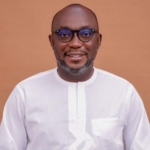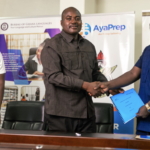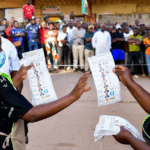
The Member of Parliament for Abuakwa South, Dr. Kingsley Agyemang, has renewed calls for a national push to strengthen leadership in basic schools, describing effective headship as “the hinge upon which the entire educational enterprise turns.”
Delivering the keynote address as Special Guest of Honour at the 2nd Quadrennial Elective Conference of the Conference of Heads of Basic Schools (COHBS), Eastern Regional Secretariat, held on November 20, 2025, at the Kibi Greenery Site Auditorium, Dr. Agyemang underscored the need to empower school leaders.
This year’s theme, “Empowering Heads, Enhancing Education Leadership for Quality Basic Education,” set the tone for a forward-looking conversation on educational transformation.
Dr. Agyemang stressed that the success of Ghana’s ongoing education reforms depends on the strength of school leadership. He pointed to global benchmarks, including UNESCO’s Education 2030 Agenda, which identify leadership as critical to achieving Sustainable Development Goal 4 on quality education.
“Educational theorists describe school leadership as the single most important school-based factor affecting learning outcomes after teacher quality,” he said. “You are not just administrators. You are the architects of the future learning environment.”
He noted that today’s headteachers must juggle instructional leadership, resource management, community relations, and digital adaptation—demands that require confidence, training, and institutional support.
Reflecting on his upbringing, the MP who also serves on the Parliamentary Select Committee on Health spoke of his late mother, a trained teacher, crediting her influence for shaping his values. Interacting with educators, he said, always feels like “a return to familiar ground.”
He also highlighted his long-running initiative that takes pupils from all 24 electoral areas in Abuakwa South to Parliament House, an experience he believes sparks ambition in young learners and reminds leaders of their duty to the next generation.
Dr. Agyemang acknowledged the demanding environment in which school heads operate: inadequate infrastructure, limited teaching materials, staff management issues, and the need to engage diverse communities. Yet he maintained that these challenges can become catalysts for innovation.
“Where infrastructure is limited, you build community support. Where learning materials are inadequate, you innovate. Where parents are disengaged, you create new channels of communication,” he said.
He commended heads of schools in Abuakwa South for actively supporting collaborative initiatives such as: The Kingsley Spelling Bee, which boosts literacy and confidence
The Kingsley Science and Mathematics Quiz, which strengthens STEM participation
The Akosua Agyeiwaa Memorial Municipal Teacher Awards 2025, which honours exceptional educators
He noted that these programmes continue to thrive because school leaders demonstrate vision and a commitment to creating transformative learning spaces.
Dr. Agyemang urged policymakers, teachers, and stakeholders to rally behind a renewed drive to elevate basic education nationwide, reminding them that the country’s progress begins in its classrooms.
“Let us imagine a Ghana where every learner rises because their school is led with vision,” he said. “A Ghana where talent is discovered early, nurtured consistently, and celebrated openly.”
He called for sustained investment in professional development, ethical leadership training, emotional resilience, and mentorship structures to support school heads across the country.
Concluding his address, Dr. Agyemang reaffirmed his commitment to expanding educational opportunities and backing the work of school heads in Abuakwa South. “We will not grow weary. We will not turn back until Ghana’s education system stands as a beacon of excellence on the African continent,” he pledged.




